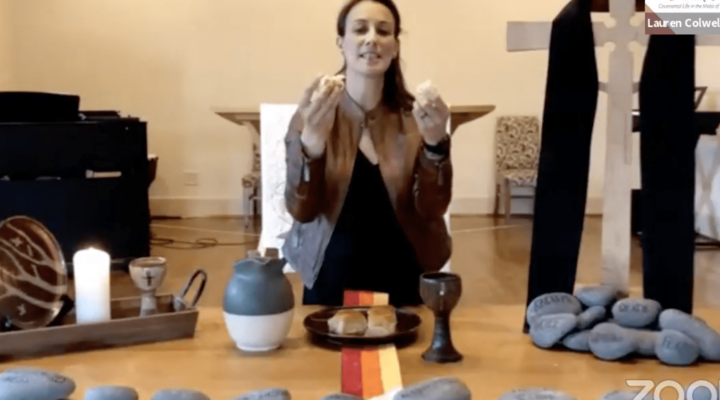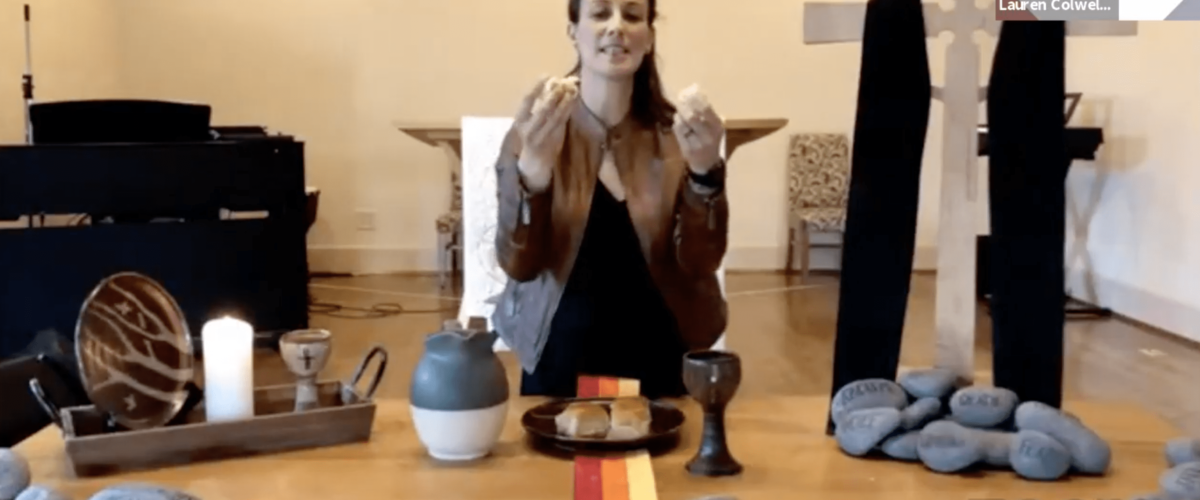The economic, racial and social injustices exposed and exacerbated by the COVID-19 pandemic have called progressive Christians to bolder-than-ever action on behalf of the oppressed, pastor and writer Aurelia Dávila Pratt said during her opening keynote address to the Alliance of Baptists’ 2021 Annual Gathering, held virtually April 23-24.
“Please, no more resurrection talk. Words aren’t enough. Prayers aren’t enough. Theology isn’t enough. We need resurrection embodied in us and in our collective consciousness,” said Dávila Pratt, senior minister of Peace of Christ Church in Round Rock, Texas.
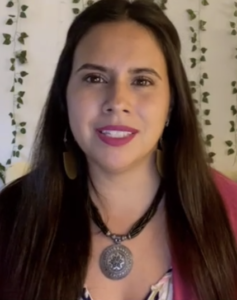
Aurelia Dávila Pratt
Referencing Isaiah 58, she said the description of fasting in Isaiah 58 as comforting the downtrodden must be embraced by people of faith to bring healing to a distressed culture and world.
“Ambitious people are not satisfied by the status quo. They are not interested in mediocrity. They are not content with apathy. Ambitious people see progress as possible,” she said. “Ambitious people roll up their sleeves head out into the thick of things and get s— done.”
The two-day Zoom event featured worship and workshops built around the title, “How Then Shall We Live? Covenantal Life in the Midst of Coronavirus and White Supremacy.”
Dávila Pratt’s sermon on April 23 was followed the next day by Robert P. Jones, founder and CEO of Public Religion Research Institute and author of White Too Long: The Legacy of White Supremacy in American Christianity, and Naomi Washington-Leapheart, director of faith-based and interfaith affairs for the city of Philadelphia.
They, like Dávila Pratt, addressed both the challenge and the actions needed to counter discrimination.
‘As Baptists we confess …’
Michael-Ray Mathews, president of the Alliance of Baptist’s board of directors, described the online event as an opportunity to celebrate and live into the organization’s “New Covenant and Mission,” adopted April 10.
The document affirms the Alliance’s historic Baptist identity and tradition of dissent but goes on to confess where it has fallen short.
“We lament that over time many of us have contributed to systems of racial, social, economic and environmental injustice, privileging some while excluding others. As Baptists we confess that we have cherished independence from one another more than responsibility to one another and have allowed systemic injustices to flourish under the banner of individual freedom. We repent and seek transformation,” the document states.
“As Baptists we confess that we have cherished independence from one another more than responsibility to one another.”
The statement commits to follow “the radical ways of Jesus,” to maintain local church autonomy and to champion religious liberty. Other goals include practicing creation justice, pursuing ecumenical and interfaith partnerships, dismantling systems of white supremacy and working to eradicate poverty.
The new “Covenant and Mission” followed “a year of acute trauma and loss” and affirms the Alliance’s commitment to participate “in God’s work in the world and to equip one another with new skills that we can use in our ministry settings,” Mathews said.
‘The supremacy of whites’
The gathering sought to drill into that mission during a pre-recorded question-and-answer session between Mathews and Jones, who was initially asked to describe the white Christian role in propagating white supremacy.
He replied that, as he had written in White Too Long, the white Protestant church in particular has been the primary legitimizing force behind the public policies, laws and cultural practices undergirding racism.
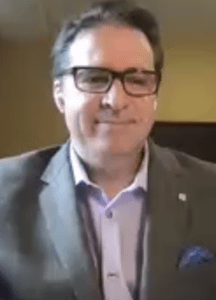
Robert Jones
“We don’t get anything blessed as a cultural practice or as law — and morally legitimized as a cultural practice — without the stamp of approval of white Christian churches in this country,” Jones said. “That means that all the things we have blessed — from slavery to Jim Crow to convict leasing programs to criminal justice inequities, segregation in schools, all of that stuff — came with the blessing of white Christian churches.”
White evangelicals are not solely complicit in fostering and supporting the structures of white supremacy. Even many of the 19th century abolitionists who opposed slavery on humanitarian grounds also opposed granting social equality to Black Americans, he reported.
Those assumptions have survived into modern times, with majorities of white mainline Protestants and Catholics espousing white supremacist attitudes in recent polling, Jones said.
But such views are imperceptible to many of those white Christians who believe white supremacy was relegated to days of lynchings and cross burnings. They also tend to see racism as a purely historical problem, he said.
“The benefit of thinking about white supremacy that way, for contemporary white people, is that distances it from us.”
That’s why Jones said he advocates changing the terminology from “white supremacy” to the “supremacy of whites,” as the latter denotes “a kind of racial hierarchy and that we white people are intended to be on top of it.”
It’s a perspective through which churches have filtered theology, scriptural interpretation and spiritual formation “generation after generation,” he said. Consequently, “it impacted how we think about everything from who Jesus was to what salvation means. Our entire theological worldview is shot through with a pre-commitment to the idea that whites are intended to be at the top of the racial hierarchy.”
“Our entire theological worldview is shot through with a pre-commitment to the idea that whites are intended to be at the top of the racial hierarchy.”
Baptists in particular have had a role in perpetuating and shaping racist structures by promoting a “hyper-individualistic theology” that removes any notion of culpability and responsibility for discerning and combating white supremacy, Jones said.
“That hyper-individualistic theology has protected us from seeing the realities of racism in the country at the institutional and systemic level, and continued denial of that is probably the biggest manifestation of white supremacy in the country.”
But awareness of the power structure is only the beginning for white Christians, he added. “If there’s something we should repent of, it is that we have allowed ourselves to construct this highly individualistic theology that blinds us to the principalities and powers of systemic racism.”
‘Find the mold and rot’
Washington-Leapheart pushed the challenge even further in her keynote address by encouraging the progressive church to examine itself, too, and to walk the path of justice it publicly promotes.
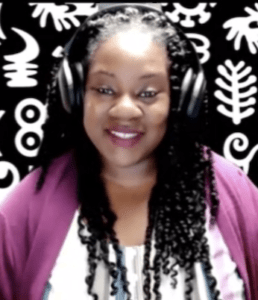
Naomi Washington-Leapheart
“We have hung the right flags outside. We have installed the right lawn signs. But have we anticipated the presence of those we claim to include?” she said. “Have we failed to consistently and fully account for — and I mean invest in — the needs of those we claim to welcome? How would folks know that we’ve been waiting specifically for them?”
Progressive Christians and churches sometimes seek diversity not to find “kinfolk” and “comrades in the struggle for justice,” but for what they see as a cultural resource that bestows upon them an aura of holiness, Washington-Leapheart said.
“I know you said you’re not like those other churches. I know that you are countercultural. But will you make room for the ones who make you question everything you thought you believed about God, everything you thought you knew about yourself?”
She illustrated her challenge with the biblical account of Jesus healing a paralytic who had been lowered through the roof of a home in Capernaum.
Her sermon, titled “Property Damage,” described how architecture and public spaces are designed to enforce racist, sexist and other values of the dominant culture.
But the passage from the Gospel of Mark makes clear that Christ approves efforts to counter those systems of oppression when he blesses the efforts of the paralytic and his friends in damaging the roof, she noted.
“I need just a few folks who are willing to go to the roof with me and start disassembling brick by brick, tile by tile.”
“I need just a few folks who are willing to go to the roof with me and start disassembling brick by brick, tile by tile. I need some folks who aren’t afraid to be downwardly mobile … . I need some people who have the audacity to break space and time protocols to protect friends and strangers and neighbors.”
And in many cases the roof that needs dismantling includes the attitudes of churches, even progressive ones, she added.
“You’ve been working overtime to make intellectual room, and even spiritual room and theological room, for what is right and just, and that’s all well and good. But have you broken the bones of the building? Have you taken down your woke artwork and drilled into the marrow of your churches’ architecture to find the mold and the rot and the infestations there?”

